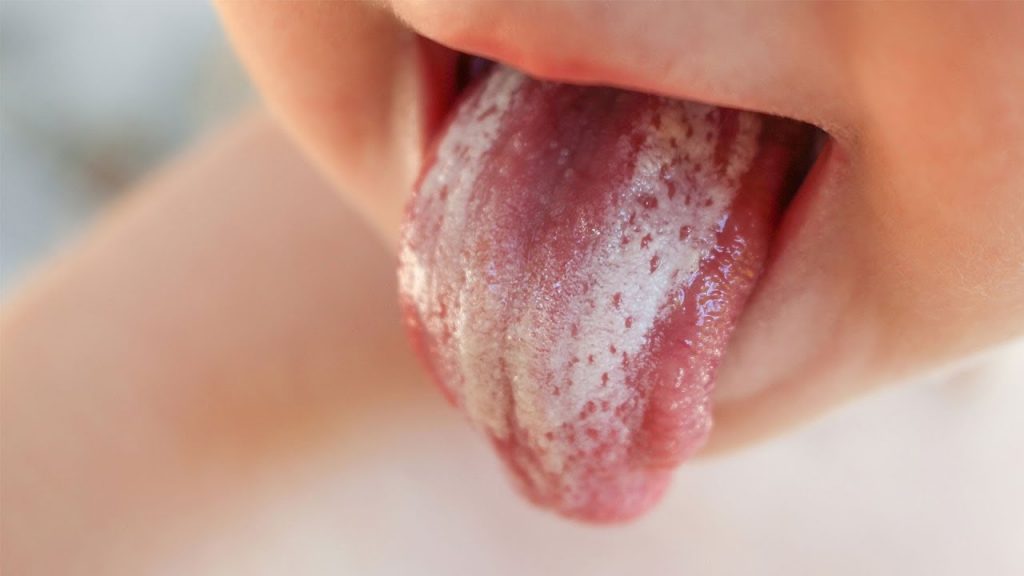Candida is a type of yeast which found on the skin or inside the body in small amounts. Candida is generally non-harmful yeast present on the skin, inside the mouth, digestive system, and genital area. When this yeast overgrows then it causes infection called Candidiasis. It is also called moniliasis or yeast infection. If fungus enters the bloodstream then the infection can spread to other body parts and become chronic. Bloodstream infections are a common problem in infants, in children with long-term intravenous catheters, and in children with weak immune systems.
In this article:
What Causes Candidiasis in Children?
Symptoms of Candidiasis in Children
Diagnosis for Candidiasis in Children
Treatment for Candidiasis in Children
Home remedies for Candidiasis
How to prevent Candidiasis in Children?
When to call a Doctor?
All You Need to Know about Candidiasis Infection in Babies
What Causes Candidiasis in Children?
Yeast is a normal inhabitant of the body which generally causes no harm. It is found on the areas like mouth, throat, digestive system, and on the genital area. This harmless yeast can cause a problem in warm or humid climate as it results in damage of the skin which eventually paves way for the yeast to over grow. Apart from this the other causes of this infection are as follows:
- Weak immune system in children
- Long-term intravenous catheters
- Consumption of antibiotics or corticosteroids which cause yeast growth
- Hot, humid weather
- Too much time between diaper changes
- Improper hygiene
- Weak immune system
Symptoms of Candidiasis in Children
Depending on the location of the infection, the symptoms of candidiasis vary. Not every child with this infection experiences all the symptoms. But the most common symptoms are as follows:
| Location | Symptoms/signs |
| Skin folds or navel | ● Rash
● Patches that ooze clear fluid ● Pimples ● Itching or burning |
| Vagina | ● White or yellow discharge from the vagina
● Itching ● Redness in the external area of the vagina ● Burning |
| Penis | ● Redness on the penis
● Scaling on the penis ● Painful rash on the penis |
| Mouth (thrush) | ● White patches on the tongue, top of the mouth, and inside of the cheeks
● Pain |
| Corners of the mouth | ● Cracks and/or tiny cuts at the corners of the mouth |
| Nail beds | ● Swelling
● Pain ● Pus ● White or yellow nail that separates from the nail bed |
Diagnosis for Candidiasis in Children
Pediatricians often make a diagnosis by examining the symptoms in your child. They will scrap lesions inside the mouth or skin to examine for signs of the infection. An ultrasound or CT scan is used to detect candidal lesions that might have developed in the brain, kidney, liver, or spleen. Blood lesions are taken to identify the type and severity of the yeast growth.
Treatment for Candidiasis in Children
After examining the symptoms of the infection, treatment is given accordingly. Depending on the type and severity of the following treatment methods are used:
- Candidiasis on the skin is treated with creams or gels. Topical medicines like nystatin, miconazole, naftifine are used.
- Infections in the genital area can be treated with medicated suppositories such as topical clotrimozole, miconazole, terconazole.
- Mouth and airway related infection may be treated with a medicated mouthwash or lozenges.
- Severe infection or infection in a child with a weak immune system may be treated with oral anti-yeast medicines.
- Esophagus: nystatin, fluconazole, itraconazole
Home Remedies for Candidiasis
Apart from the usual medical treatments, people choose to use certain home remedies to relieve the symptoms and promote for a quick recovery. Some of the home remedies that can be followed are:
- Apple cider vinegar: add a cup of this vinegar to your infant’s bath water.
- Garlic: mix a clove of raw garlic into your child’s food or mash it into a paste and spread it over the affected area of skin.
- Tea tree oil: boil one half-cup of water and allow it to cool. Add 5 drops of tea tree oil and use the solution to clean the affected area.
- Oatmeal: oatmeal can help to ease the symptoms of a yeast infection. Place half a cup in a cheesecloth or similar pouch and drop it into the toddler’s bath water.
- Oil of oregano: there is some laboratory evidence that origanum oil may be an effective treatment for fungal infections. However, studies in humans are necessary to confirm this.
Note: the above remedies are not scientific and have no much evidence to support them. Therefore, consult your physician before you try it at home, since risks may be involved. Watch for any signs like worsening of rash on skin, if you find any stop using the remedy.
How to Prevent Candidiasis in Children?
- Keep your child’s skin as clean and dry as possible
- Keep changing the diapers often
- Allow your child to have diaper-free time
- Do not use antibiotics on your child unless really needed
- Watch for any symptoms of candidiasis after the use of antibiotics
- Teach children about personal hygiene, such as how to brush their teeth and take a bath
- Make sure your toddler is in a healthy and hygienic environment
- Consult your pediatrician often and discuss about prevention if your child has a weak immune system
When to call a Doctor?
Call a health provider immediately if you notice any severe symptoms like rashes spreading to a larger area, when the symptoms get worse, increased redness, swelling, increased fluid release, increased warmth, or if you notice any other new symptoms. Being vigilant every second will help to prevent any worsening of the infection.
References
https://www.healthychildren.org/English/health-issues/conditions/infections/Pages/Thrush-and-Other-Candida-Infections.aspx
https://www.medicalnewstoday.com/articles/322378.php
